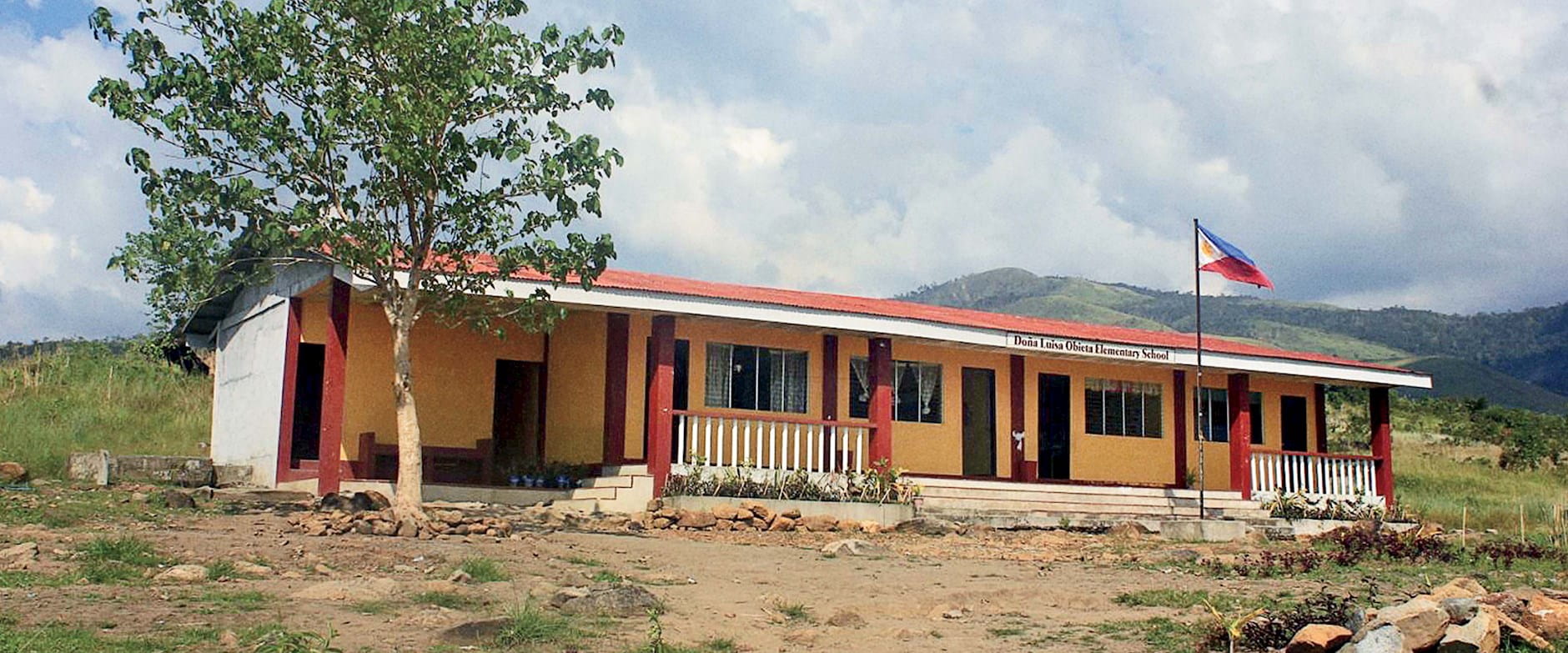In 2013, Teresita Yujuico, ’02 (AXP-1), was inspecting forested land that she leases in the Philippines’ Zambales province, about 150 miles northwest of Manila. On a trail, she encountered a man in his 80s holding the arm of a 12-year-old girl.
Yujuico later learned that the girl’s mother had owed the man a debt of 250 pesos—which was about US$6 at the time—and had paid with her daughter.
“I said to myself, ‘This cannot go on,’” Yujuico reflects.
Realizing that a lack of opportunity in this remote and rugged area often resulted in girls getting pregnant or married at a young age, she resolved to make education more accessible in her home country. She built a school to serve children from the local indigenous group, the Aeta.
Locating the school in an area central to several Aeta communities, Yujuico named it Doña Luisa Obieta School of Hope in honor of her mother, “without whom I would not be who I am today,” she shares. She aimed to reach students who would otherwise need to walk 4 to 8 miles over rough terrain to access an education.
“If school is too difficult to reach, many students just won’t make it there,” Yujuico says. “Without education, we close the door on opportunity.”
In 2019, the United Nations World Population Prospect ranked the Philippines as the 10th highest in the world for child marriages, which number around 808,000 in a national population of approximately 108 million. In January 2022, the Philippines officially outlawed marriage or cohabitation with anyone under 18.
“If school is too difficult to reach, many students just won’t make it there. Without education, we close the door on opportunity.”
— Teresita Yujuico, ’02 (AXP-1)
“Education never ends,” says Yujuico, pointing out a theme in her life since her early years that inspired her to earn an MBA at 57 years old, after raising seven children in California with her husband, a venture capitalist. “I’d like all moms to have the opportunity for further education.”
Her MBA experience enabled her to master the fundamentals of finance, increased her confidence, and prepared her to establish retail stores and two resorts in the Philippines. She used her earnings to found a charitable organization in 2011, the Istana Social Development Foundation.
The foundation’s work focuses primarily on education and includes the Doña Luisa Obieta School of Hope, as well as two other nursery schools in the provincial towns of Dampay Salasa and Tanay. It also provides school essentials such as books, backpacks, and learning materials for students in need. Other projects include a weekly meal program for school children and a free medical clinic in the Zambales area. The Istana Foundation also provides academic-based university scholarships for Yujuico’s employees’ children.
Along with education and public health, Yujuico has turned her focus toward sustainability initiatives. Through her work with Forever Forest, Yujuico maintains and plants trees in Zambales and other remote areas. Noting that tree care prevents the landslides and flooding that result when cleared hillsides erode, she leases and maintains 232 acres of forest from the Philippine government to prevent it from being used for lumber or charcoal production.
Her foundation also plants saplings that include the Philippine mahogany and the narra, the country’s national tree. Like many countries, the Philippines is working to replant trees after deforestation in the mid-20th century and other periods.
“After I started my businesses, I realized I had to give back to my community and country by providing educational opportunities where they are most scarce,” says Yujuico. “Giving back is the best investment I’ve ever made.”


